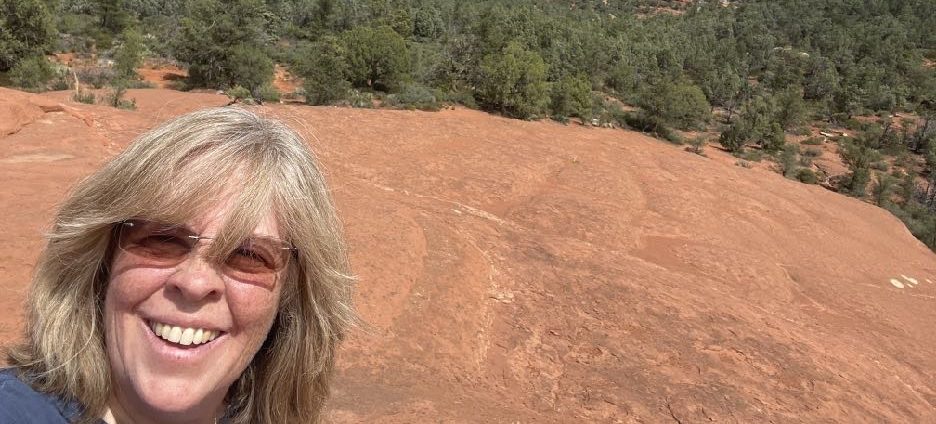And They Danced.
After making the same choice twice to be with Larry, I decided to try to assemble some kind of new family dynamic. I brought my parents into my world this time.
Larry was playing with his band, so I invited them to hear him sing. To my surprise, they showed up.
I slid over in the booth with my beer, asked them if they wanted anything to drink. They did not.
Drinking in front of my parents – no matter how old I was, no matter where I lived, just felt … so wrong.
So we sat together and I just sipped. I talked over the music, pointing at the guys in the band, talking about them as though they were brilliant, explaining their musical histories. I didn’t mention their wives or grandchildren.
Instead I talked about the steel guitar since, as an instrument, it mesmerized me.
“The steel guitar player sings a song called What I’d Say; I love it.”
“I know that song,” said my dad. “It’s Ray Charles.”
“Really?! It’s a great song!” I thought my dad and I were bonding.
Actually the song came out before I was born, when my dad was a teenager. The guy who played steel guitar was probably 10 years older than my dad. No one mentioned this.
“Yeah,” said my dad. “You sat on my Ray Charles album.”
I’d done this when I was a toddler; I could never tell if he was mad at me for breaking his album, or if he was being funny. This night, I felt particularly guilty.
Our music-drenched conversation was stilted, awkward. While Larry sang, I rambled on and on.
Suddenly the music shifted; the band started playing something slow. I knew this song from my dad’s Olivia Newton-John album, Help Me Make It Through the Night.
My dad asked my mom to dance.
So my parents went right out there onto the dance floor with all the other old people, and they danced.
I hadn’t seen my parents dance often, since it’s not the sort of thing parents do in the living room when raising three children, except on television. They’d always been close, almost never argued, but I’d never seen them slow dance.
And there was Larry, on the stage by the dance floor in this dingy bar, singing his heart out: “I don’t care what’s right or wrong…!” and smiling a huge smile, playing his guitar and nodding gleefully at me. The way Larry saw it, my parents had finally crossed into our world, peacefully and happily, and would stay there forever, accepting their daughter’s fate, understanding everything.
But I knew better.
I watched my parents dance, silently stunned. They wanted to understand how I’d come to this point, how they’d lost their daughter to this smoky bar full of drunken strangers. They wanted to accept Larry – his age, his occupation, his cigarettes, his motorcycle, his theft of their beloved child. They wanted to understand the allure, to figure out why I thought this lifestyle was better than how I’d grown up.
I knew they’d never understand.
So they danced.
And then the song was over. My dad waved to Larry briefly as Larry smiled there on the stage, and they came back to the booth where I was sitting, but they did not sit down.
“We’re going to go,” they said.
I stood up and thanked them, hugged them, both grateful and agonized that they were leaving.
Then finally, when they left, I could drink the way I wanted to drink.
I never invited them again.
